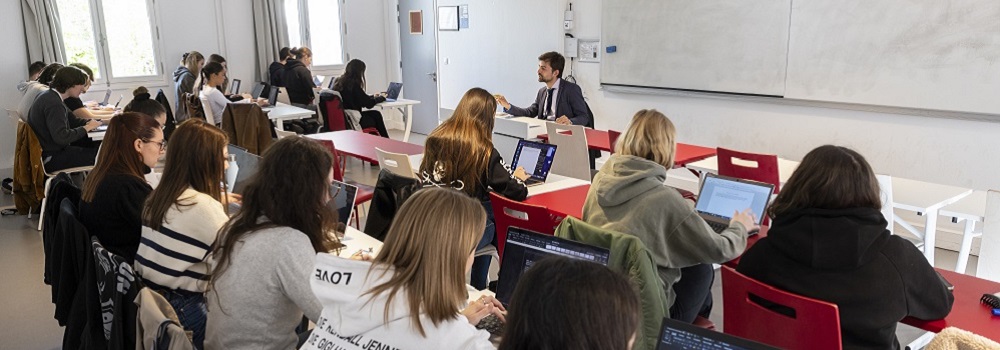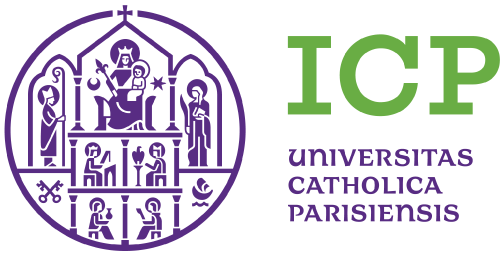Program
Methods of Instruction
Students are encouraged to participate in class discussions and ask questions that directly relate to the case study that they have chosen. All course content is located on the ICP Moodle (formation.icp.fr). The course will be taught entirely in English (teaching, articles, videos, Powerpoint, etc.). The course content will address questions related to methodology, theory, techniques related to conflict analysis, and case study analysis.
Bibliography
Pierre Allan and Alexi Keller, What is a Just Peace?, Oxford University Press, 2006.
Dario Battistella, Dictionnaire des relations internationales : approches, concepts, doctrines, Dalloz, 2012.
Dario Battistella, Retour à l’état de guerre, Paris, Armand Colin, 2006.
Dario Battistella, Théories des relations internationales, Presses de Sciences Po, 2014.
John Burton, Conflict: Human Needs Theory, New York: St. Martin’s Press, 1990.
John Burton and Frank Dukes, Conflict: Readings in Management & Resolution, New York: St.Martin’s Press, 1990.
John Baylis, Steve Smith and Patricia Owens, The Globalization of World Politics: An Introduction to International Relations, Oxford University Press, 2010.
Greg Cashman, What Causes War?: An Introduction to Theories of International Conflict, Rowman & Littlefield Publishers, 2nd edition, 2013.
Greg Cashman and Leonard Robinson, An introduction to the causes of war: Patterns of Interstate Conflict from World War I to Iraq, Rowmand & Littlefield Publishers, Inc., 2007.
Dale Copeland, The origins of Major war, Cornell University Press, 2000.
Alexander L. George and Andrew Bennett, Case Studies and Theory Development in the Social Sciences, Belfer Center for Science and International Affairs, 2005.
William H. Hill, Russia, the Near Abroad, and the West: Lessons from the Moldova Transdniestrian Conflict, Woodrow Wilson Center Press and The John Hopkins University Press, 2012.
Jean-Vincent Holeindre, Frédéric Ramel, La fin des guerres majeures ?, Economica, 2010.
Robert Jervis, Perception and Misperception in International Politics, Princeton University Press, 1976.
Robert O. Keohane, After Hegemony: Cooperation and Discord in the World Political Economy, Princeton University Press, 2005.
Robert O. Keohane, and Joseph Nye, Power and Interdependence: World Politics in Transition, Longman, New York, 1977.
Charles King, The Moldovans: Romania, Russia, and the Politics of Culture, Hoover Institutional Press, 2000.
Hans J. Morgenthau, Politics among Nations. The Struggle for Power and Peace, Alfred A. Knopf, Inc, New York, 1948.
Richard Ned Lebow, A cultural theory of international relations, Cambridge University Press, 2008.
Richard Ned Lebow, Why Nations Fight: The Past and Future of War, Cambridge University Press, 2010.
Jack S. Levy and William R. Thompson, Causes of War, Wiley-Blackwell, 2010.
Thomas Lindemann, Causes of War: The Struggle for Recognition, ECPR Press, 2010.
Thomas Lindemann, La Guerre: Théories, Causes, Règlements, Armand Colin, 2010.
Thomas Lindemann, Penser la guerre. L'apport constructiviste, Paris, L'Harmattan, 2008.
Thomas Lindemann, Sauver la face, sauver la paix : Sociologie constructiviste des crises internationales, L’Harmattan, 2010.
Thomas Lindemann and Erik Ringmar Erik, ed., The International Struggle for Recognition, ParadigmPublisher, 2012.
Jeffrey Mankoff, Russian Foreign Policy: The Return of Great Power Politics, Rowman & Littlefield Publishers, 2nd edition, 2011.
John Mearsheimer, The Tragedy of Great Power Politics, W.W. Norton & Company, 2003.
Scott Douglass Sagan and Kenneth N. Waltz, The Spread of Nuclear Weapons: An Endless Debate, W. W. Norton & Company, 3rd edition, 2012.
Stephen Van Evera, Causes of War, Cornell University Press, 2001.
Stephen Van Evera, Guide to methods for students of political science, Cornell University Press, 1997.
Stephen M. Walt, Taming American power: the global response to US primacy, W. W. Norton, 2005.
Stephen M. Walt, The Origins of Alliances, Cornell University Press,1987.
Kenneth Waltz, Man, the state, and war: a theoretical analysis, Columbia University Press, 2001.
Kenneth Waltz, Theory of International Politics, New-York, McGraw-Hill, 1979.
Alexander Wendt, Social Theory of International Politics, Princeton University Press, 1999.


 Libraries
Libraries
 Practical information
Practical information
